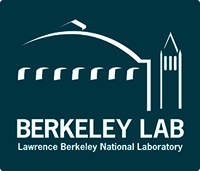Newswise — Two innovative technologies from the U.S. Department of Energy’s (DOE) Lawrence Berkeley National Laboratory (Berkeley Lab) have been honored with a 2024 R&D 100 Award. The award, presented by R&D Magazine and selected by an independent panel of judges, recognizes the year’s 100 most innovative and disruptive technology products from industry, academia, and government-sponsored research.
Berkeley Lab’s winning technologies improve wastewater treatment and develop software for autonomous labs of the future. The winning teams will be celebrated at the R&D 100 gala banquet in Palm Desert, California, on November 21.
These are the technologies and their Berkeley Lab contributors:
A new electrode material for cleaner water
Selenium pollution that is found in bodies of water around the world can be harmful to humans, animals, and aquatic systems. Current methods of biological treatment for wastewater that contains selenium are expensive, sensitive to water co-contaminants, and can produce unwanted byproducts. Berkeley Lab scientists have developed an electrode material made with iron and nickel that can effectively remove selenium through the process of direct electrochemical reduction. The material performs better than the traditional electrodes used in the process and is cheaper, making it a promising alternative for safe, sustainable water treatment.
The development team is led by Wei Tong and Shengcun Ma.
gpCAM: software for autonomous labs of the future
gpCAM is a software tool for artificial-intelligence (AI)-driven autonomous decision-making. Scientific facilities around the globe can conduct experiments at an ever-increasing rate, furthering discovery in critical areas such as materials research, drug discovery, carbon capture, energy storage, and many more. The complexity and pace of many experiments make it impossible for them to be controlled by humans, leading to underutilization and inefficiencies. Given a small preliminary dataset, a Gaussian process can be used to compute uncertainties for all possible future experiments and then be queried to return the optimal set of new suggestions. gpCAM (“gp” for Gaussian processes, “CAM” for the project it originated from, CAMERA) allows intelligent decision-making for these experiments faster and more accurately than ever before, leading to accelerated scientific discovery at self-driving laboratories of the future.
The development team led by Marcus Noack and James Sethian includes Ron Pandolfi.
R&D 100 Professional Awards winners
In addition to recognizing the year’s 100 most innovative and disruptive technologies, R&D Magazine awarded R&D 100 Professional Awards. These awards honor exceptional leaders and teams for their achievements. One Berkeley Lab expert has been awarded with this honor this year.
Howdy Goudey receives Technician of the Year Award
Howdy Goudey, a senior scientific engineering associate at the Lab, was recognized for his vast technical expertise and inventiveness that has enabled leading-edge research and development in efficient building technologies, as well as his engagement with his community. He supports an extensive array of testing facilities, engineers, and scientists within the Building Technologies and Urban Systems Division. His abilities to envision and fabricate test equipment, design and execute experiments, guide researchers, and mentor junior staff have allowed him to play a significant role in many high profile projects including an infant warmer, national energy performance ratings for window attachments, vacuum-insulated window glazing, and gas-filled panels for high-performance thermal insulation. In addition, Goudey serves as the electrical safety officer for the Energy Technologies Area, and beyond his lab responsibilities, he is a mentor and prolific volunteer within his community.
Five other Berkeley Lab innovations were also selected as finalists for the R&D 100 Awards.
For information about licensing the above technologies, contact [email protected].
###
Lawrence Berkeley National Laboratory (Berkeley Lab) is committed to delivering solutions for humankind through research in clean energy, a healthy planet, and discovery science. Founded in 1931 on the belief that the biggest problems are best addressed by teams, Berkeley Lab and its scientists have been recognized with 16 Nobel Prizes. Researchers from around the world rely on the lab’s world-class scientific facilities for their own pioneering research. Berkeley Lab is a multiprogram national laboratory managed by the University of California for the U.S. Department of Energy’s Office of Science.
DOE’s Office of Science is the single largest supporter of basic research in the physical sciences in the United States, and is working to address some of the most pressing challenges of our time. For more information, please visit energy.gov/science.




